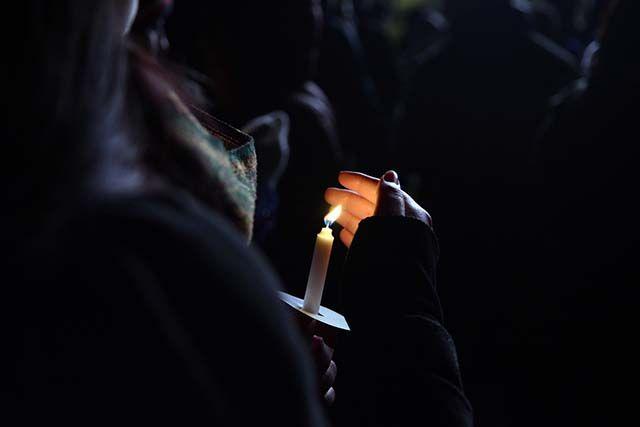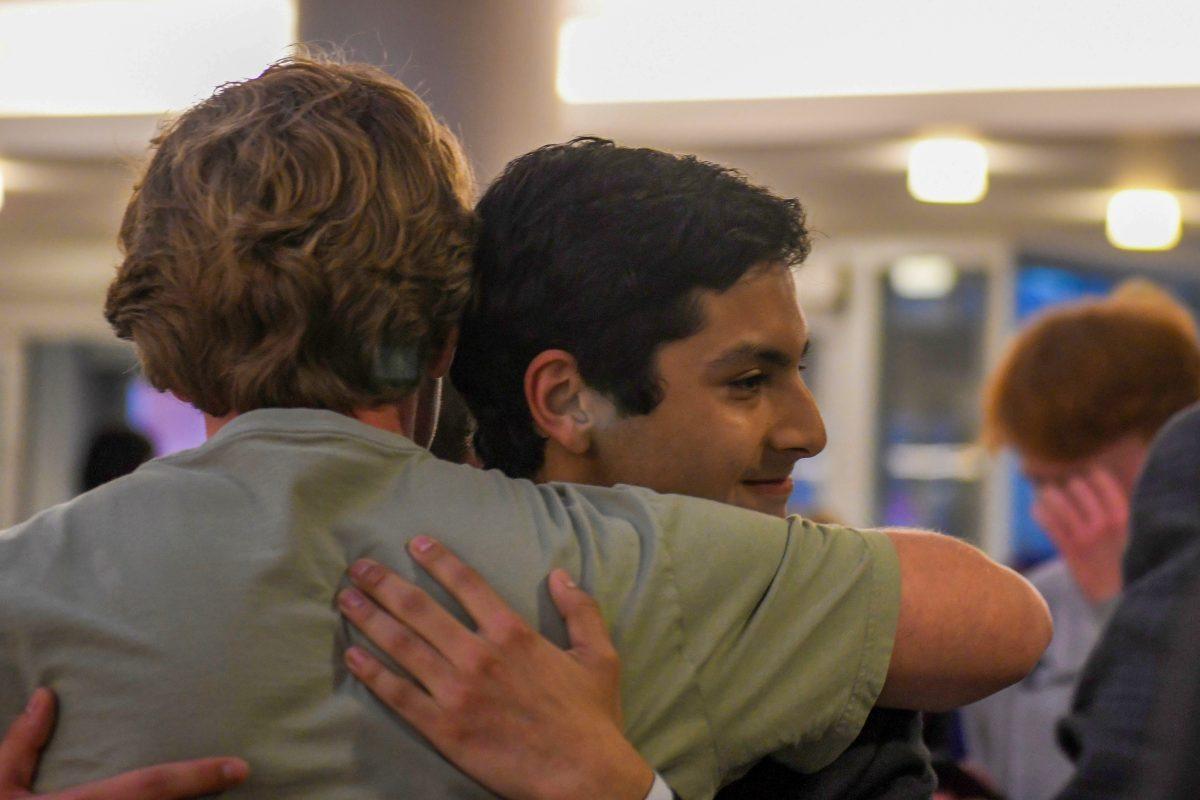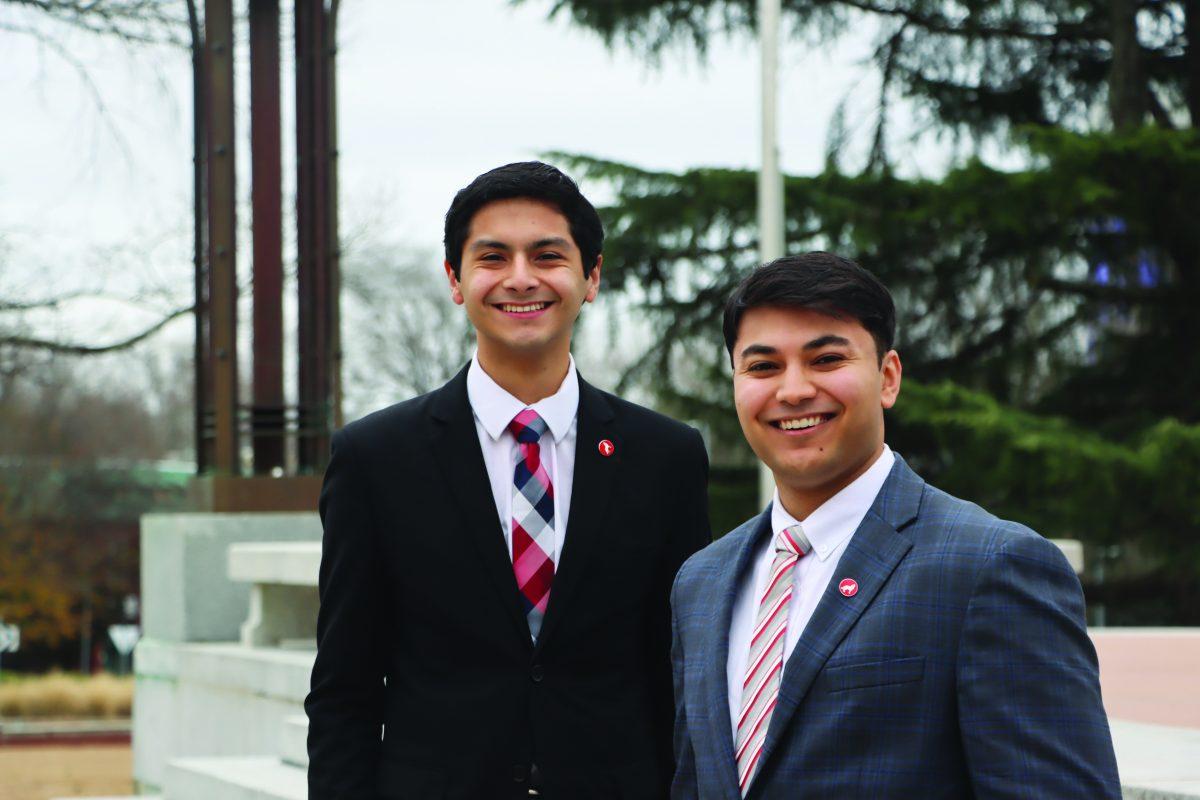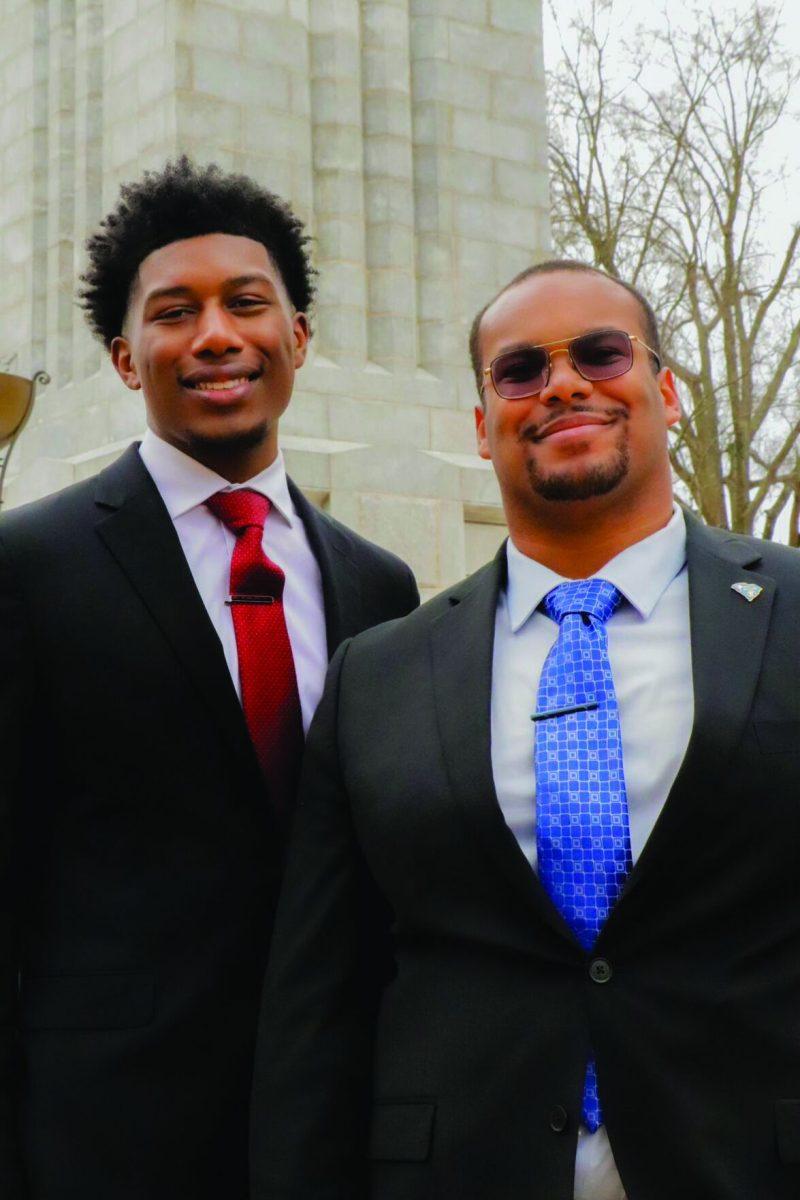The NC State Student Senate unanimously passed Resolution 123 on Wednesday, formally recognizing the 10th anniversary of the murders of Deah Barakat, Yusor Abu-Salha and Razan Abu-Salha and condemning anti-Muslim hate crimes.
The resolution, titled the “Our Three Winners Remembrance Act,” also honors the positive impact the three young adults had on the Raleigh community and the University, and applauds the continued work of organizations like the Our Three Winners Foundation, The Light House Project, DYOR Clinic, Al-Iman School and the Islamic Association of Raleigh in fostering advocacy and remembrance.
Mary Ledford, a second-year studying education and chair of the standing committee on government relations and oversight, said the resolution was a necessary step in supporting the Muslim and Arab communities on campus.
“This legislation definitely needs to pass,” Ledford said. “Every time in this session we have discussed Muslim students or Arab students, it has been with an air of negativity or an air of caution because of so much negativity that’s happening, not only on campus, but in the state of North Carolina against the Muslim and Arab community. And I think that this would be, unfortunately, one of the best ways that we could respect those students on our campus.”
Deah Shaddy Barakat, Yusor Mohammad Abu-Salha and Razan Mohammad Abu-Salha were murdered on Feb. 10, 2015, in their Chapel Hill home by their neighbor Craig Hicks. The crime, initially labeled a parking dispute, was later recognized as a hate crime motivated by anti-Muslim bias.
John Britt, a graduate student studying genetics, said the victims deserved recognition.
“I read the report about all this, about what happened to these people who dedicated their lives to helping other people, helping those less fortunate than them, and I really do think we need to honor the type of lives not only did they live, but could have lived if their lives had not so tragically been taken away from them,” Britt said.
Barakat, an NC State graduate and UNC-Chapel Hill School of Dentistry student at the time of his death, dedicated his life to providing dental services to underprivileged communities. Yusor Abu-Salha, also an NC State graduate, led the Muslim Student Association, organized health fairs for underserved communities and advocated for refugees. Razan Abu-Salha, an architecture student at NC State at the time of her death, used her artistic talents to raise funds for medical and humanitarian aid for children in the Middle East.
The resolution acknowledges that authorities had expressed their regret to the families for not correctly labeling what took place as a hate crime and reaffirms the legacy of “Our Three Winners” by recognizing the advocacy efforts sparked by the murders to combat anti-Muslim rhetoric. It also highlights the work of the Our Three Winners Foundation, created to enhance equality and reduce discrimination towards Muslims and other marginalized communities, The Light House Project, a safe place for Muslim youth and the DYOR Clinic, a free oral healthcare clinic for refugees and underserved adults.
Chloe Webster, a first-year studying political science, said awareness is key, especially when few student senators were familiar with the murders.
“I think it’s important that we share these stories and other stories similar, because conversation does have impact, and awareness does have impact,” Webster said. “I think it’s extremely telling that a lot of us, even in Senate, didn’t realize that this had happened, and if people who are actively engaged, such as those in Student Government, are unaware, you can only imagine just how many people on campus aren’t aware. And these are not just members of the Raleigh or North Carolina community — these are graduates of NC State and students of NC State.”
Corresponding senator Zainab Aleem, a third-year studying chemistry, shared her connection to the murders. As a former student of Al-Iman School, which all three victims attended, Aleem recalled the shock and grief that resonated through the community following the murders.
“It was a horrific day for the shock and mourning — one that I will never forget,” Aleem said. “The influx in Muslim hate crimes since 2015 have been adjacent, if not more, to what we have seen after 9/11 — something that has been unreported in the media.”
Naila Din, a third-year studying microbiology and a co-sponsor of the resolution, emphasized the importance of recognizing the victims’ connection to NC State and their contributions to the community.
“Just hearing the story really made me angry, but then also, I’m just so glad that I’m in my position in Student Government, that we are able to write a recognition and a remembrance piece of legislation in their name,” Din said. “ … They did so much for our community, the NC State University community, the Raleigh community, and so I really think that they deserve the recognition for their lives being taken so shortly.”
Aleem said she hopes the resolution will send a message of representation, visibility and support to Muslim students on campus.
“I want Muslim students to know that they are represented, they are seen and they are heard, and there are people who are willing to be the voice for them when they can’t be,” Aleem said. “… [The victims’] legacy is still living, and we plan on continuing their legacy.”
Arif Khan, a board member of the Our Three Winners Foundation, spoke to the importance of the resolution in ensuring that the victims’ names and legacies are not forgotten.
“It means a lot to us and the family of Deah, Yusor and Razan,” Khan said. “It means a lot to us, those of us in the community here in the Triangle, myself included, and it means a lot to many, many more beyond that because there’s a couple of things, one, you don’t ever want their names or their legacies to be lost. So it’s always very empowering and heartfelt to see that something like this comes to light in the way it did with the resolution.”
Khan said the resolution also reminds the community that divisiveness and hatred can have dire consequences.
“The second thing is, you want people to remember that when we talk about divisiveness and dehumanization of people and hatred towards one another for any reason: creed, religion, race, whatever it might be, that these things aren’t just theoretical thoughts — they have repercussions,” Khan said. “They have consequences that are as dire as this was right where three beautiful souls were lost because of it. And so it’s important people don’t forget that these are things that we have to talk about and remember and try to get over. So it means a lot, and we’re very happy to see NC State, who’s always been very supportive, both from the administration all the way down to the students enacting something like this.”
Khan emphasized the foundation’s commitment to combating anti-Muslim hate crimes and rhetoric through education, implicit bias recognition and fostering understanding between people of different backgrounds.
“As we think about all the differences that exist, when people actually get to know each other, talk to each other, break bread together, we get over the fear then the hatred and the division that we have amongst ourselves because really, all those things stem from fear of the unknown,” Khan said. “And if you get to know somebody, a lot of that can actually be pacified.”
The legislation calls for copies of the resolution to be sent to Chancellor Randy Woodson, several deans, leaders from the Our Three Winners Foundation, The Light House Project, DYOR Clinic, Al-Iman School and Islamic Association of Raleigh, as well as the families of the victims.













